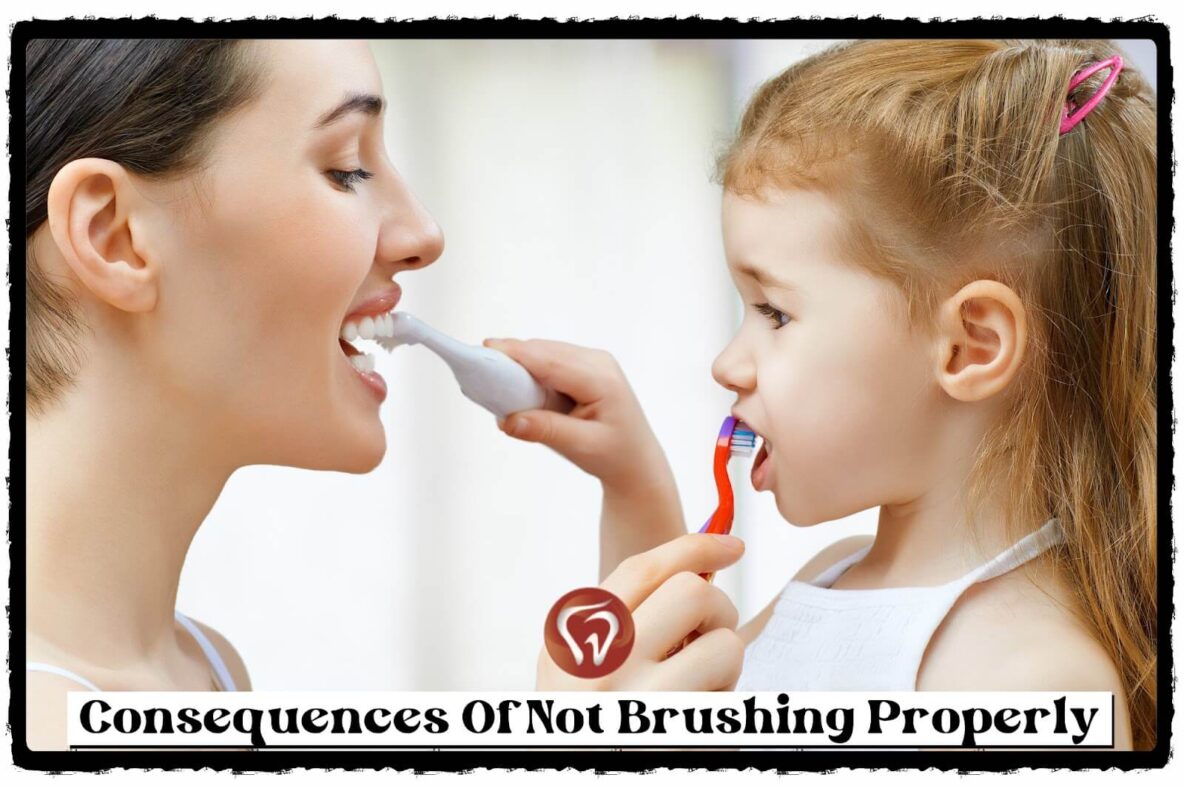Brushing your teeth at least twice a day should be an integral part of your day and should not be missed from your daily routine. Your smile is the first thing that people notice, which may have a significant impact on both your social and professional life. This is one of the reasons why everyone should strive to take good care of your oral health.
The following problems may occur due to poor brushing habits:
Gum Disease – Plaque that is not removed will eventually cause the gums to separate and recede. Once your gums begin to recede, pockets form between the teeth and gums. Germs can get trapped inside these pockets, impacting the gums and the bone supporting the teeth. Plaque will eventually harden into tartar (calculus). At this point, gingivitis would have progressed into a more serious condition called periodontitis. This can cause tooth mobility and loss and may affect your overall health.
It is important to see your dentist at the first sign of swollen or bleeding gums. They will evaluate your condition and help provide you with the treatment required. For any questions about your gum health or oral health needs, contact Signature Smilez Family Dental.
Cavities – Tooth decay is the destruction of tooth structure, usually initially affecting the enamel and sometimes progressing to the dentin. It can happen when foods containing carbohydrates (sugars and starches) such as breads, cereals, milk, soda, fruits, cakes, or candy are left on the teeth. Bacteria that live in the mouth digest these foods, turning them into acids. This eventually forms plaque which clings to the teeth. The acids in plaque dissolve the enamel surface of the teeth, creating holes called cavities or caries. At this stage it is important to get the cavities filled, and prevent further damage to your teeth.
Bad Breath (halitosis) – When you don’t brush your teeth and clean your tongue regularly, bacteria will build up in the mouth, which can cause a variety of problems including bad breath. To prevent plaque and tartar build-up, always brush your teeth at least twice a day, floss regularly and visit your dentist every six months.
Below are some common oral hygiene aids for home care:
Dental Floss: This is the most common interdental and subgingival (below the gums) cleaner and comes in a variety of types and flavors. The floss itself is made from either thin nylon filaments or polyethylene ribbons, and can help remove food particles and plaque from between the teeth and under the gums. Incorrect flossing with a floss holder can cause soft tissue damage and bleeding, so proper technique should be utilized.
Interdental Cleaners: These are dental brushes which come in various shapes and sizes and are used in addition to dental floss. These tiny brushes are gentle on the gums and can be effective in cleaning the contours of teeth around the gums.
Mouth Rinses: There are two basic types of mouth rinse available: Cosmetic rinses which are sold over the counter and temporarily suppress bad breath, and therapeutic rinses which usually require a prescription from your dentist. Your dentist can help recommend a mouth rinse that is suitable for you.
Oral Irrigators: Oral irrigators like water jets and Waterpiks have been created to clean debris from between the teeth. If you would like to include an oral irrigator as part of your home care regimen, feel free to ask our staff for recommendations.
Tongue Cleaners: These are special devices which have been designed to remove the build-up of bacteria, fungi and food debris from the surface of the tongue. The fungi and bacteria that colonize the tongue have been related to halitosis (bad breath) and many systemic diseases like diabetes, heart disease and respiratory disease. Tongue cleaners can be made from metal/wood/plastic and shaped in accordance with the contours of the tongue.
Toothbrushes: There are a multitude of toothbrush types available. As long as a patient’s brushing technique is effective, either manual or electric toothbrushes can be utilized. Manual toothbrushes should be replaced every three months because worn bristles become ineffective overtime. Soft to medium bristle toothbrushes are recommended because they decrease the possibility of damage to the tooth and gum. In addition, an appropriate sized ADA approved toothbrush should be chosen to allow proper cleaning of all teeth. Teeth should ideally be brushed after each meal or minimum twice each day.
In case you still have any questions, don’t hesitate contact us : Signature Smilez Family Dental || 780-478-2100 || info@signaturesmilez.ca

